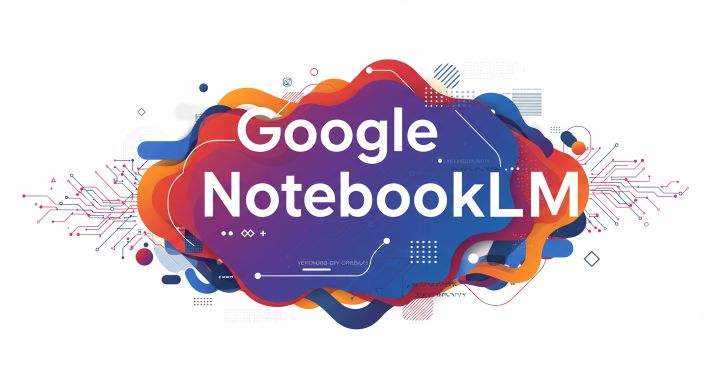Location

Google AdSense vs Affiliate Marketing
Introduction When it comes to monetizing your website, two major players stand out: Google AdSense and Affiliate Marketing. Both have their merits and drawbacks, but which one is the right fit for your site? Let’s break it down step by step so you can make an informed choice.
What is Google AdSense? Google AdSense is an advertising platform that allows website owners to earn revenue by displaying ads.
How Does Google AdSense Work? Google AdSense connects publishers with advertisers. Here’s a quick breakdown:
- Sign-Up Process: You register your website, and Google reviews it.
- Ad Placement: You embed ad code on your site, allowing Google to serve relevant ads.
- Earnings: Revenue is based on pay-per-click (PPC) or impressions (CPM).
Benefits of Using Google AdSense
- Passive Income: Once set up, ads run automatically.
- Ease of Use: Google handles ad placements and payments.
- Diverse Advertisers: Access to a broad pool of advertisers.
Downsides of Google AdSense
- Low Earnings for Small Sites: Traffic volume directly impacts revenue.
- Ad Relevance Issues: Sometimes ads may not align with your audience’s interests.
What is Affiliate Marketing? Affiliate marketing involves promoting third-party products or services and earning a commission for each sale made through your referral link.
How Does Affiliate Marketing Work? Here’s how affiliate marketing operates:
- Join an Affiliate Program: Register with platforms like Amazon Associates or niche-specific networks.
- Promote Products: Use links, banners, or reviews to highlight products.
- Earn Commissions: You get a percentage of each sale made via your link.
Benefits of Affiliate Marketing
- High Revenue Potential: Commissions can be significant for high-ticket items.
- Flexibility: Promote products relevant to your niche.
- Direct Audience Connection: Tailor recommendations to your readers’ needs.
Downsides of Affiliate Marketing
- Sales Dependence: Earnings rely solely on conversions.
- Time-Intensive: Requires creating compelling content and building trust.
Comparing Google AdSense and Affiliate Marketing Which one should you choose? Let’s compare key factors.
Revenue Generation
- AdSense: Steady, low-risk income from clicks or impressions.
- Affiliate Marketing: Higher potential revenue per sale but less predictable.
Effort Required
- AdSense: Minimal effort after setup.
- Affiliate Marketing: Ongoing effort to create engaging content.
Audience Fit
- AdSense: Suitable for general or high-traffic websites.
- Affiliate Marketing: Best for niche-focused sites with a loyal audience.
Traffic Requirements AdSense relies on high traffic to maximize earnings, while affiliate marketing thrives on targeted traffic, even if volumes are lower.
Pros and Cons at a Glance
Google AdSense Pros and Cons
- Pros: Passive income, easy setup, and scalable with traffic.
- Cons: Limited earnings for small sites, ad dependency.
Affiliate Marketing Pros and Cons
- Pros: High earning potential, niche adaptability.
- Cons: Requires consistent effort and audience trust.
Choosing the Right Monetization Strategy
Assess Your Website’s Strengths
- Traffic Volume: High traffic? AdSense may be better.
- Audience Engagement: Engaged readers? Affiliate marketing might work.
Consider Your Niche
- Broad topics with diverse traffic suit AdSense.
- Niche topics with product relevance fit affiliate marketing.
Your Time Investment
- Prefer a hands-off approach? Go with AdSense.
- Ready to invest time? Affiliate marketing is worth it.
Can You Use Both?
Combining AdSense and Affiliate Marketing Many websites use both strategies effectively. For example:
- AdSense for General Pages: Monetize traffic-heavy areas.
- Affiliate Links in Content: Use targeted posts to drive affiliate sales.
Avoid Overcrowding Ads Balance is key. Too many ads can deter users, hurting engagement and conversions.
Testing and Optimization Experiment to see what works best for your audience. Analyze earnings and adjust placements or strategies accordingly.
Final Thoughts Deciding between Google AdSense and affiliate marketing depends on your website’s niche, traffic, and your personal goals. While AdSense offers a simpler, hands-off income, affiliate marketing provides higher earning potential for those willing to put in the effort. Why not try both and find the perfect mix?
FAQs
1. Can I use AdSense and affiliate marketing on the same website?
Yes, many site owners successfully combine both strategies to diversify their revenue streams.
2. Which is better for beginners, AdSense or affiliate marketing?
AdSense is often easier for beginners due to its passive nature, while affiliate marketing requires more effort and expertise.
3. Do I need high traffic for affiliate marketing?
Not necessarily. Even small, targeted audiences can generate significant affiliate income.
4. How long does it take to earn from AdSense?
It depends on your traffic volume. High-traffic sites see quicker results, while smaller sites may take months.
5. What niches are best for affiliate marketing?
Health, finance, technology, and lifestyle niches tend to perform well due to high consumer interest.
6. Can I run AdSense ads alongside affiliate links?
Yes, you can use both on the same page as long as it adheres to Google’s policies.
7. How do I track affiliate sales?
Most affiliate programs provide a dashboard to track clicks, conversions, and earnings in real-time.
8. Is affiliate marketing more profitable than AdSense?
It can be, depending on your niche, product selection, and audience engagement.
9. Are there any restrictions on the types of content for AdSense?
Yes, Google has strict guidelines on acceptable content. Ensure your site complies to avoid penalties.
10. What skills do I need for affiliate marketing?
Strong writing, marketing, and analytical skills are essential to create engaging content and optimize performance.


